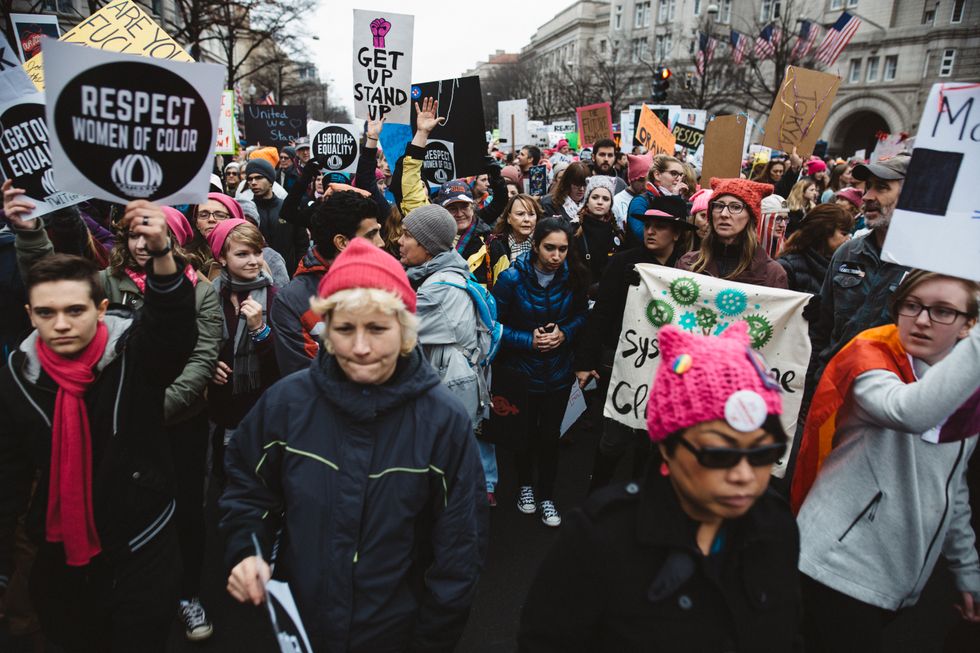From reading the headline of this article, you may have a plethora of questions or a range of emotions.
If you have known me for some time you may be thinking, “Jordan, you have always been vocal about women’s rights wouldn’t that make you a feminist?”
Or maybe someone out there will think of this as a think piece of a former feminist who has seen the light and realized how toxic and man-hating it was. Neither of those is the case, in fact in many ways I am technically still a feminist; I’m just simply not one by name any longer.
In Merriam-Webster’s dictionary, feminism is defined as “the theory of the political, economic, and social equality of the sexes”. While this is a concept that has been around since 1895, there has been some evolution in the term and branches of the concept.
This brings me to the topic of today’s article. By definition, I still believe it to be true, but I understand that feminism in practice in today’s society is vastly different depending on who is practicing it. This leads to two branching forms of feminism that will be covered today and why I would consider myself a part of those branches more so than the full tree of feminism.
What does it mean to be an intersectionalist and a womanist? And why I would not consider myself much of a feminist in 2017.
Womanism is defined as “a form of feminism focused especially on the conditions and concerns of black women”. It was coined in 1984 by Alice Walker, author of the Color Purple, during the second wave of feminism. Like feminism, womanism has also evolved over the years and branched off to other terms such as Africana womanism which focuses on the activism of African women.
And even with the different offshoots, the term itself has also changed as well, typically encompassing the focus on women of color but recognizing black women specifically on occasion.
Intersectionality was coined as well in the 1980s by specifically Kimberlé Crenshaw in 1989. Intersectionality is defined as, “the complex, cumulative way in which the effects of multiple forms of discrimination (such as racism, sexism, and classism) combine, overlap, or intersect especially in the experiences of marginalized individuals or groups.”
With the way of the world, these two factions have become more apparent. People are recognizing the power of black women when it comes to starting and supporting movements. They are also understanding that their struggle is different from others and need to be respected as such. But there is also the development of the LGBTQA+ community as it gains more rights and develops more of their own voice.
Sometimes someone in the community will not fit the traditional definition of feminism but they still face inequalities different from those of those in power and so must be supported as well. And the same goes for those with different religions or disabilities. When feminism was first introduced as a concept, it was mainly used to help middle-class white women gain more of an advantage in society despite the fact that minority women and those who do not fit in the spectrum also supported them as well.
People are finally realizing this divide and while some work to reclaim what it means to be a feminism, others simply wish to use womanism or an intersectionalist instead to describe how they are. Even going as far as to call feminism as it is now, white feminism due to the shift of the concept back to how it originally was when it was created.
But now it leads to my feelings on the different terms; do I consider myself a feminist? When I was younger, I would say I was but I always identified more as a womanist and I probably would use it more in my everyday language now to help spread the term.
But I would also consider myself an intersectionalist because I do believe in the equality of everyone and try my best to understand the struggle of those different than my own. I do think that the term feminism is too toxic and too connected to the concept of whiteness for me to really feel comfortable with at least for now.
I still believe in the core believe of the term, that we can and are equal, now it is simply the time to work towards a better future where we no longer have to fight over the concept.






















